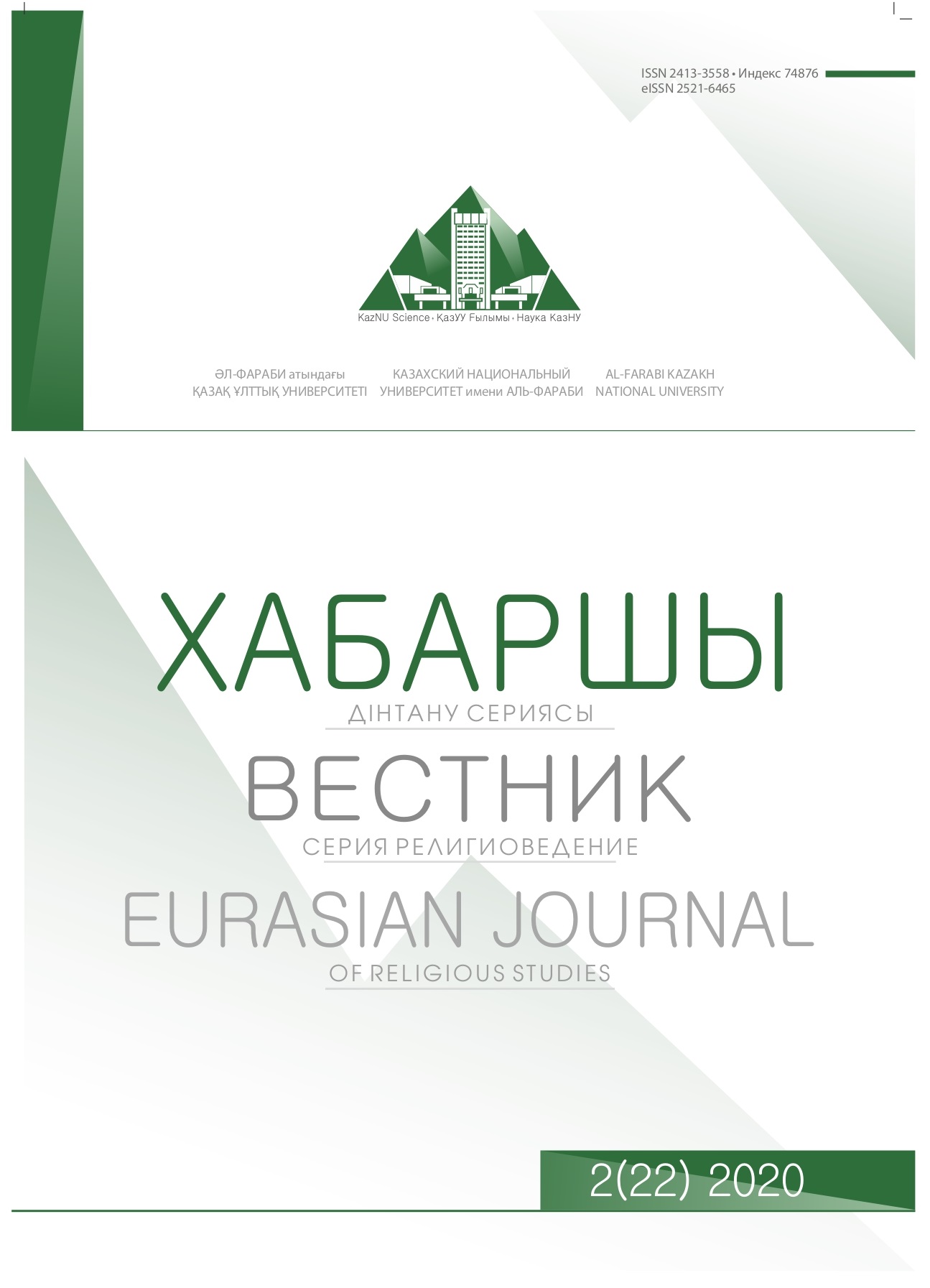Psychology of religion in the system of religious studies
DOI:
https://doi.org/10.26577/ejrs.2020.v22.i2.r1Abstract
This article provides a general analysis of the study of the psychology of religion. The aim is the disclosure of the causes of its occurrence, development and interaction with other aspects of the history of mankind and mutual influence in the human mind. The article reveals two terms that are still often confused, although they denote various phenomena – its the psychology of religion and religious psychology. Unfortunately, the main reason for the prevailing confusion of these concepts is the very little attention paid until recently to the study of the phenomena of psychology in general and the phenomena of religious psychology in particular. Meanwhile, the development problems psychology of religion today is particularly important. Historically and psychologically, religion is very closely, especially at the first steps of mankind, intertwined with other forms of social consciousness: morality, art, science. She had a tremendous impact on the whole life of mankind and entered into mores and customs. Moreover, no other science can replace it. Knowledge of the psychology of religion, as we have seen, allows to better understand the past and present relations of religion and life.
References
Belzen, J.A. (2010) «Religion and Self: Notions from a Cultural Psychological Perspective», Pastoral Psychology 59 (4). 190 p.
Coe G.A. (2015) The Psychology of Religion. Chicago: University of Chicago Press. 185 p.
Cronbach, A. (1978) «The Psychology of Religion: A Bibliographical Survey», The Psychological Bulletin 15 (12). 180 p.
Frankl V. Suffering from the meaninglessness of life: relevant psychotherapy. Novosibirsk: Siberian University. Publishing House, 2008. 178 p.
Guntrip, H. (1949) Psychotherapy and Religion. London: Independent Press. 212 p.
Hall, S.G. (1923) Jesus, the Christ, in the Light of Psychology. New York, D. Appleton. 320 p.
Hall S.G. (1982) «Moral and Religious Training of Children», Princeton Review. New Series IX. 125 p.
James V. The diversity of religious experience / trans. from English V.G. Malakhieva-Mirovich and M.V. Chic; under the editorship of S.V. Lurie. M .: journal. «Rus. Thought», 1910. 183 p.
Leuba, J.H. (1909) The Psychological Origin and the Nature of Religion. London: Archibald Constable. 312 p.
Platonov K.K. Psychology of religion. Facts and thoughts. M .: Politizdat, 1967. 90 p.
Pratt J.B. (1988) «The Psychology of Religion», The Harvard Theological Review 1 (4). 165 p.
Slobodchikov V.I. Christian psychology in the system of psychological knowledge // Psychology. Journal of the Higher School of Economics. 2007.V. 4. No. 2. 132 p.
Starbuck, E.D. (1899) The Psychology of Religion. New York: Scribner. 156 p.
Ugrinovich D.M. Psychology of religion. M .: Politizdat, 1986. 144 p.
Voskresensky B.A. Some clinical aspects of the problem of «religiosity and mental disorders» - Religiosity and clinical psychiatry: Materials of the First Moscow International Conference, Moscow, 2017. 146 p.
Vygotsky L.S. The historical meaning of the psychological crisis // LS Vygotsky Psychology of human development. M .: Publishing house Sense; Eksmo Publishing House, 2005. 120 p.
Winnicott, D.W. (1953) «Transitional Objects and Transitional Phenomena», International Journal of Psycho Analysis. 216 p.
Wundt V. Psychology of peoples. M .: EKSMO - TERRA FANTASTICA, 2002. 160 p.













